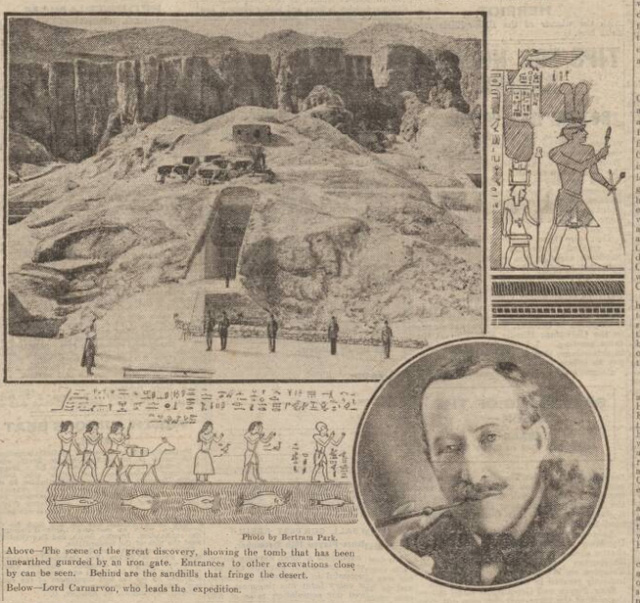We love hearing stories about what people are finding in the Archive. In particular, we enjoy hearing stories about how the newspaper reports have provided added insight into the lives of ancestors and helped people to gain a better understanding of their forebears.
So we were delighted when Debra Watkins tweeted to tell us about how she had learned more about her ancestors through reading newspaper reports on the BNA website. In short, Debra had long been puzzled by the very early deaths of two brothers who were ancestors of hers. So when a relative sent her a photograph of a gravestone for the brothers’ grave, her curiosity led her to the BNA website to try and find out what had happened to the boys.
Debra has written a very interesting article about her recent discoveries in the BNA, and has very kindly agreed to let us republish her article below.
************************
Last night my cousin shared a photograph with me. It was taken after the 1908 hurricane hit Bungay (in Suffolk) and severely damaged two Cemetery chapels. What interested both of us about the photograph was the gravestone in front. It was a Jolly grave – our common ancestors. Not only that, the grave was for two children – brothers – one aged twelve and the other aged nine, who had drowned. Putting my Miss Marple hat on, I went straight to the British Newspaper Archive website.
Bungay Cemetery Chapel; the aftermath of the 1908 hurricane
The gravestone of brothers, Frederick & James Jolly
The Ipswich Journal dated 7 March 1882 reported the drowning death of nine-year-old James Jolly, the son of James and Charlotte Jolly of Bungay. The report states James was allegedly seen stealing from a broken shop window and upon being asked what he was doing, ran away. He was last seen by a school friend who spoke with James and asked where he was going in such a hurry. James replied that he was going on an errand and ran towards the direction of the Bungay Common. The next day a local butcher found a cap on the Common, by the river, belonging to James Jolly and went to alert Policeman Mann. Upon further searching, they found the body of James Jolly who was drowned. An inquest returned an open verdict of “accidental drowning”.
The Ipswich Journal – Tuesday 07 March 1882
Image © THE BRITISH LIBRARY BOARD. ALL RIGHTS RESERVED.
http://www.britishnewspaperarchive.co.uk/viewer/bl/0000071/18820307/008/0003
Contacting my cousin with the news, we were both shocked about this newspaper article. Curiosity got the better of me an hour or so later and I went back to the British Newspaper Archive on the off-chance that James Jolly’s brother Frederick may have also died under strange circumstances. You would be right in assuming that a large percentage of children died in Victorian times. Sickness, disease, inadequate (or expensive) health care and poverty were rife and it would be considered “normal” for a child to die before being given a proper chance at life. You can therefore imagine my total surprise when I found the newspaper report for Frederick.
The Ipswich Journal – Saturday 27 December 1890
Image © THE BRITISH LIBRARY BOARD. ALL RIGHTS RESERVED.
http://www.britishnewspaperarchive.co.uk/viewer/BL/0000071/18901227/036/0008
The Ipswich Journal dated 27 December 1890 reported that Frederick Jolly “died suddenly”. After a brief illness ( a common cold) Frederick, who was an errand boy for a local chemist, complained of feeling unwell and was sent home to recuperate. On the way home he met with some of his friends who began taunting him with snowballs. We all know that kids can be cruel but I am pretty certain that they did not anticipate that would be the last time they would see their friend. Frederick allegedly reported to his friends that he had eaten some poisoned sweets and felt unwell. The next day, after a night of vomiting and diarrhoea, Frederick was pronounced dead by the local surgeon, Mr Garneys. The coroner for the district decided that no inquest was necessary and Frederick had died of “sudden illness”.
What frustrates me as a twenty-first century genealogist and social historian is that the circumstances of these children’s deaths was brushed aside and not properly dealt with. The newspaper reports throw up all kinds of unanswered questions and leave me sorely wishing for a time machine. In the case of James, he was a nine-year-old boy. A cheeky larrikin perhaps, but a boy who had his whole life ahead of him. How did he come to drown? Why did he drown? Who is accountable for this boy’s death? Was it a mere accident or was something bigger going on?
In the case of Frederick, he was a 12-year-old boy who had been sick with a common cold. The circumstances of how he came to ingest “poisoned sweets” is baffling. He worked for a chemist so it may be safe to assume that Frederick may have been curious about the powders and tablets and maybe the temptation to “try” some overcame him. Did he unwittingly kill himself? Why was this not mentioned in the report? It was just expected that he was a child, and children die every day. No big deal.
I am quite saddened that these two brothers died so young. Their parents James and Charlotte Jolly lost two of their sons to unfair and disadvantaged circumstances. I think I can better understand my great-grandmother Nellie Jolly today. She prayed every night, on her knees, beside her bed, with her rosary beads wrapped around her hands, for everyone in her family. She named every single one – immediate family and extended – and she would not rise from her kneeling position until she had mentioned every person.
Bungay Cemetery today
It turns out that the photograph (pictured above) is actually on page 93 of Christopher Reeve’s 2009 book “Bungay Through Time”. The photograph’s caption reads:
“Bungay Cemetery, Hillside Road: The Cemetery, established in the late nineteenth century, originally had three mortuary chapels. In 1908, a rare hurricane occurred which blew down the north wall of one of them, and it was demolished soon afterwards.
Reference
This article has been republished with the kind permission of Debra Watkins. You can read more about Debra’s family history research on her blog.
http://pocketfulloffamilymemories.blogspot.co.uk/





6 comments On Your Family History Stories – ‘When Children Die In Strange Circumstances’, By Debra Watkins
PLEASE stop using such loose language: Two brothers aged 12 and 9 are nobody’s “ancestors” unless they were particularly precocious!
Jay
Debra, How strange life is and how fantastic we are the generation who can find the knowledge at the push of a button. On-line archives are the way forward. I have found that some family stories become realities through newpapers records.
happy searching.
im delighted to find you got to the bottom of things ive had a hard time finding where my relatives are burried it was murder swiftly followed by suicide ive read the inquest rather tangled lives but cant find the bodys yours is interesting reading thanks for the insite i too wish i had a time machine .
We’re glad you like the article, Kay. Regards, Grant.
What sad stories. The loss of these children and the dismissive attitude of the authorities amount to a real tragedy for the family. Without wishing to sound ghoulish, it is precisely the thing that makes us want to find out more about our histories. I was impressed that Debra managed to discover so much from the Archives, too.
We’re glad you liked the story, Niki. Yes,it’s often morbid curiosity that keeps us going. Regards, Grant.